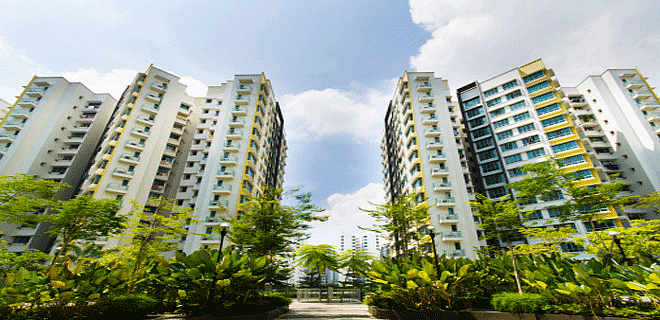Mumbai is one of the most expensive property markets in India, with average rates in prime locations touching Rs 45,000 to Rs 1,00,000 per square foot, depending on the area, as per research by ANAROCK. In such a case, for many homebuyers, resale flats offer a more accessible way to enter this market, without the wait time, uncertainty, or high upfront costs of under-construction projects.
One major incentive? No Goods and Services Tax (GST) is applicable on resale or ready-to-move-in homes, unlike under-construction properties.
What Is a Resale Property?
A resale property is one that has already been owned by someone and is now being sold to another buyer. It may be a decades-old unit or recently-bought under-construction one offloaded before completion. But the bottom line is it's not a first sale from the builder.
Why Resale Properties Appeal to Mumbai Buyers
1. Lower Costs
Older properties tend to be more affordable than new launches in the same locality. A 20-year-old 2BHK in Bandra (West), for instance, could cost less, while a brand-new apartment of similar size is expected to come at a premium rate.
2. Immediate Possession
For those avoiding construction delays, a common issue even post-RERA, resale flats offer the certainty of possession within weeks of payment and registration.
3. Established Infrastructure
These properties are typically located in developed neighbourhoods with functioning water, power, roads, and social infrastructure. You know exactly what you're getting.
4. No Surprises
Unlike buying based on brochures or sample flats, resale buyers see the actual unit—its layout, ventilation, view, and amenities- before making a decision.
5. Zero GST
As per Government regulations, GST is not levied on completed or ready-to-move-in properties where the Occupancy Certificate (OC) has already been issued.
What to Check Before You Buy
Buying a resale flat requires a multi-layered due diligence process:
1. Legal Title and Ownership
Check the registered sale deed and ensure the seller has a clear, marketable title. Avoid properties sold through General Power of Attorney (GPA) or based on unregistered wills, these are often contested in court.
2. Encumbrance Certificate
Obtain the encumbrance certificate from the Sub-Registrar's Office or online. This confirms the property is free of legal or financial liabilities such as loans or disputes.
3. Tax Receipts and Utility Bills
All pending dues must be cleared before sale. Ask for recent property tax receipts and utility bills to avoid assuming someone else's debt.
4. Housing Society NOC
A No Objection Certificate from the society is mandatory. If the society hasn't been formed, a letter from the developer will be required.
5. Infrastructure & Location
The monsoons are relentless in Mumbai. Before signing on the dotted line, visit at various times of day, talk to residents, including renters, who are more likely to give it to you straight.
6. Structural Integrity
Check for signs of seepage, cracks, or unauthorised modifications. Illegal changes, like enclosing balconies or altering structural walls, can jeopardise building safety.
Is RERA Protection Available?
RERA (Real Estate Regulatory Authority) protection is valid for five years from the time of possession in registered projects. If you're buying a relatively new resale unit, part of that protection period may still be available. Check the project's registration on the MahaRERA website to confirm.
Documentation Checklist
Here are the essential documents to ask for:
Sale Deed & Title Papers
Index II (Summary of registered sale deed)
Encumbrance Certificate
Society NOC
Share Certificate (and the form for transferring it to your name)
Latest Tax Receipts
Occupancy Certificate
No Dues Certificate from the Society















